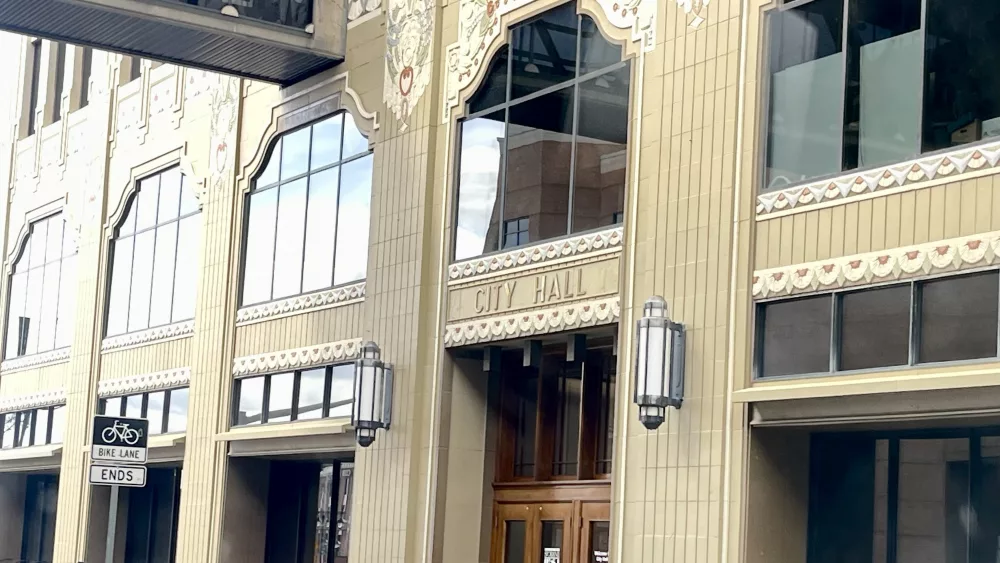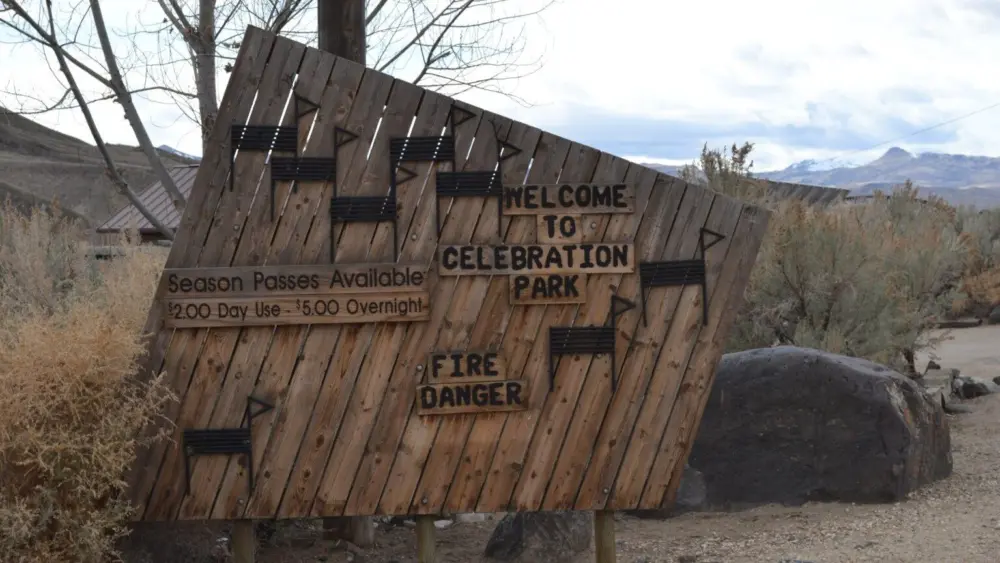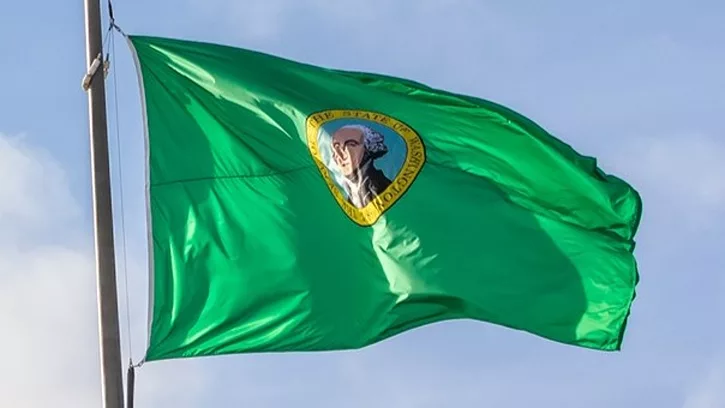OLYMPIA, WA – A rural central Washington hospital is warning of devastating consequences from the Medicaid cuts the Republican-led Congress passed last week.
For years, Astria Health has worked to find a path forward for its hospital in Toppenish on the Yakama Reservation. But the drastic downsizing of federal Medicaid funding threatens the hospital’s future, which could force it to change services, consolidate with Astria’s hospital about 20 miles away in Sunnyside or explore an acquisition or merger.
If the Toppenish hospital closes, the communities it serves would become a medical desert, hospital officials caution.
“We have stretched resources as far as they can go,” Astria President and CEO Brian Gibbons said in a statement. “But no health system — especially one serving multiple underserved communities — can continue reallocating funds without consequences.”
The hospital’s plight is emblematic of how huge cuts to Medicaid included in the megabill President Donald Trump signed Friday could prove ruinous for the finances of both the state and its hospitals, especially in rural areas, as well as for the low-income residents who rely on the program for health care coverage, advocates say.
The so-called “big, beautiful bill” is expected to blow a multibillion-dollar hole into the state’s budget, and kick hundreds of thousands of residents off their insurance if they don’t prove they meet new requirements.
As of May, nearly 2 million Washington residents, including over 850,000 children, were enrolled in the state’s Medicaid program, known as Apple Health, according to the state Health Care Authority. That’s roughly a quarter of the state’s population.
Given the size of the program and its heavy imprint on hospitals’ finances, the fallout of federal cuts could be felt far beyond just Medicaid patients. Hospitals may have to grapple with decisions to close units or entire facilities to all patients.
“It’s difficult to overstate how devastating these cuts will be to Washingtonians,” Gov. Bob Ferguson said in a press conference Wednesday. “They will bring our health care system to the brink and harm people in every corner of our state.”
No congressional Democrats supported the tax cut and spending bill. In Washington, both Republican members of the congressional delegation voted for it, despite their central and eastern Washington districts having the most residents on Medicaid.
Republicans see the move as rooting out fraud, waste and abuse in the safety net program. U.S. Rep. Dan Newhouse, R-Sunnyside, called the changes “common-sense reforms” to “ensure the program’s long-term sustainability.” Reduced Medicaid spending is one of the main ways GOP lawmakers attempted to offset the expense of tax cuts in their legislation.
Over the next 10 years, Washington could lose one-fifth of the federal dollars it receives to run Apple Health, amounting to $3 billion to $5 billion per year, according to the nonpartisan health research group KFF. Washington spends $21 billion on Medicaid annually, with $13 billion of that coming from the feds. It’s the biggest chunk of federal funding the state receives and Medicaid is one of the state’s largest expenses.
Ferguson has said previously there’s no way for the state to backfill the lost federal funding using rainy day fund reserves.
The uninsured rate in Washington was 4.8% as of 2023. For years, the state made progress getting more people health insurance. Ferguson now expects the uninsured figure to balloon into double digits due to the Republican legislation.
Medicaid is especially vital for many of Washington’s most vulnerable residents. It’s the largest payer for opioid use disorder treatment. More than 100,000 use it for long-term care. It covers three in eight people with disabilities and three in five nursing home residents.
Cathy Knight, state director of the Washington Association of Area Agencies on Aging, worries the funding loss could lead states to restrict Medicaid eligibility.
“The ripple effect is going to be disastrous in the years to come,” she said. “I think people are going to die.”
Medicaid enrollees account for 45% of births in the state, and 70% in rural Washington, the governor said.
“Cuts to Medicaid will absolutely impact rural hospitals first and the quickest, because they live on such thin margins, and you change their reimbursement a little bit, and you’re going to start to see those shutter,” said Harborview Medical Center CEO Sommer Kleweno Walley, who was born in a hospital in Whitman County.
“And when they do, that will shutter for everybody in the rural community, not just individuals who require Medicaid,” she added.
Lost coverage
Before Congress passed the Affordable Care Act in 2010, Emily Brice was working in social services.
Over and over, uninsured people with serious illnesses would come to her asking if they had any options to get coverage.
“My answer to that was, many times, ‘I don’t have an answer for you,’” Brice recalled Tuesday, feeling like she was sending them home to die.
This was in Chicago, before she became a lawyer and co-executive director at Northwest Health Law Advocates.
“I didn’t want to give people that answer anymore,” Brice said. “When I look at this bill, I see echoes of that past where we had decided as a society at the time that health care was not something that everybody deserves to have.”
Overall, the law is expected to cut about $1 trillion of federal Medicaid spending nationwide over 10 years. Much of this reduction is tied to stricter work requirements that are expected to push people off the program.
Medicaid spending in rural areas, specifically, is estimated to drop by $155 billion over the next decade, including $4.75 billion in Washington, according to KFF. To address this, lawmakers in Congress added $50 billion in grants for rural health care.
Newhouse and Rep. Michael Baumgartner, R-Spokane, both applauded the investment, though it’s unclear how much of that will end up helping Washington.
The cuts to Medicaid and the Affordable Care Act marketplace could leave nearly 12 million people without insurance by 2034, according to the Congressional Budget Office.
Estimates of how many people could become uninsured in Washington vary. According to Ferguson’s office, 250,000 would stand to lose Medicaid coverage and another 150,000 wouldn’t be able to afford insurance on the health care exchange. Congressional Democrats peg the total around 329,000.
This is achieved through a number of major but wonky changes to federal health policy. Brice calls it “death by a thousand paper cuts.”
On the enrollment side, the biggest change is the work requirements. Starting as soon as January 2027, enrollees will consistently have to prove they’re working, volunteering or attending classes at least 80 hours per month or show they qualify for an exemption. The mandate would apply to healthy adults up to age 64 without dependent children under 13 years old.
States have experimented with work requirements, but have run into administrative roadblocks and added costs. In Arkansas, the requirements didn’t increase employment but did result in people losing Medicaid coverage.
“Think about how hard it is to file taxes, and then just imagine doing that process multiple times a year just to see a doctor or get your prescription,” Brice said.
Of Washington adults on Medicaid, 70% are working, according to KFF.
The provision targets states like Washington that expanded Medicaid eligibility under the Affordable Care Act. It doesn’t apply to the mostly Republican-led states that haven’t done so. The Medicaid expansion is one of the most significant legacies of the Affordable Care Act, also known as Obamacare, a law that has drawn the scorn of Republicans for years and which they attempted to repeal during Trump’s first term.
Carma Matti-Jackson, president and CEO of the Washington Health Care Association, said that even though older Americans aren’t covered by the work requirements, they could face trickle-down effects if states divert funding to assist people who’ve lost coverage.
Added costs
Some who continue to receive Medicaid coverage will pay more out of pocket.
The new law requires expansion states like Washington to charge up to $35 for some services for certain enrollees. Those whose incomes are between the federal poverty level and 138% of that level will have to pay. For a single person, the poverty level is $15,650 per year.
The new copay policy doesn’t apply to primary care, mental health services, substance abuse treatment, emergency care in an emergency room or family planning.
This could lead to low-income enrollees forgoing care to avoid paying even modest amounts. However, states can choose to charge less than $35. While many states have already imposed some level of cost sharing, Washington has not.
Justin Gill, the president of the Washington State Nurses Association, expects to see more uninsured and sicker patients who’ll further strain an already overstretched workforce.
“We’re going to try and do the best that we can, but when the systems around us are working against us, at some point, you’re going to see providers, nurses really kind of start to identify that this may not be something that’s sustainable for them individually,” he said. “And I think that that’s a realistic threat that oftentimes people won’t really appreciate until we get there.”
Gill, an urgent care nurse practitioner in Everett, is frustrated with lawmakers who voted for the legislation but won’t have to sit in the exam room when a patient comes in with a heart attack that could’ve been prevented with primary care visits.
And if hospitals become more jammed, that means worse care for everyone, Matti-Jackson said.
“So when my grandmother, who’s in assisted living, falls and breaks her hip, or has a stroke and needs to get in, there’s access issues,” she said.
Finances and Obamacare
The legislation also limits taxes on health care providers that help underpin state Medicaid spending. Revenue from these taxes is used to unlock more federal dollars and the money ends up flowing back to the providers.
Washington levies such taxes on hospitals, nursing homes and ambulance providers. This change could especially hurt rural hospitals that rely on Medicaid spending to keep above water.
The bill also reduces what are called state-directed payments, which allow states to tell managed care plans, with federal approval, how much they should pay providers. The goal is to get hospital systems more money for taking care of Medicaid patients.
“Let’s pretend like you were going to get $50 to take care of this patient,” explained Kleweno Walley, the Harborview CEO. “With this program, you would get $60 now. That’s not necessarily anywhere near what a commercial insurance would pay, but at least it’s more than what the base Medicaid payment was.”
These state-directed payments and provider taxes bring in nearly $2.4 billion annually in Washington, according to state health officials. Critics liken these financing mechanisms to money laundering.
Those with Obamacare plans will also face new barriers to enrolling and won’t be allowed to automatically reenroll.
This will impact young healthy people who won’t be bothered to jump through more hoops to get insurance, Brice said.
The law also restricts subsidies for Affordable Care Act marketplace coverage for some lawfully present immigrants, like asylum seekers and refugees. Earlier versions of the legislation aimed to lower Medicaid payments to states like Washington that cover immigrants without legal status using state dollars, but that provision didn’t win final approval.
UW Medicine estimates it’ll lose $365 million per year because of the law, said Kleweno Walley, whose hospital in Seattle is part of the University of Washington system. But that’s “just the icing on top,” she said, as hundreds of millions more in hospital funding could be at risk depending on how many people lose insurance coverage.
She worries the long lead time for some of the provisions to kick in will make it harder for the public to understand the legislation’s impact.
“My fear is that people will forget,” Kleweno Walley said, “and then it’ll slowly trickle out and cause ripple effects.”
This story first appeared on Washington State Standard.





